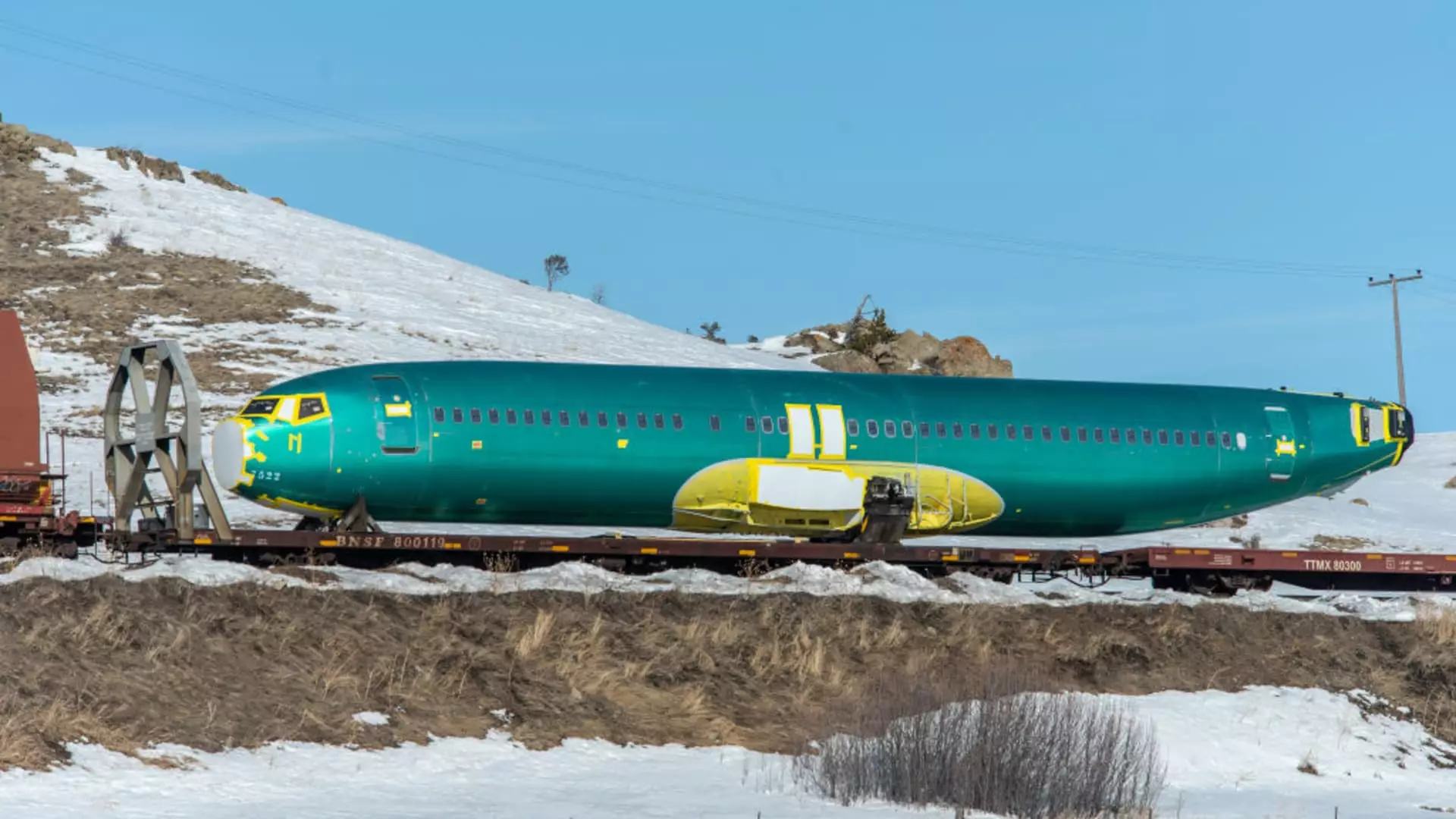Boeing CEO Dave Calhoun and other top company leaders are set to meet with the Federal Aviation Administration (FAA) to present a quality improvement plan. This plan is aimed at demonstrating enhanced staff training and production practices at Boeing factories. The meeting comes after a concerning incident earlier this year involving a new 737 Max 9 airplane door panel.
The FAA issued a 90-day deadline for Boeing to come up with a quality improvement plan following the blowout of the airplane door panel on an Alaska Airlines flight in early January. Federal safety investigators later discovered that bolts crucial for holding the panel in place were missing. As a result, the FAA prohibited Boeing from increasing 737 Max production until the company made significant quality control improvements.
The crisis has had serious repercussions for Boeing, leading to a tarnished reputation, increased federal scrutiny, and a slowdown in 737 Max production. This slowdown has forced airline customers such as United and Southwest to revise their growth plans. Boeing’s Chief Financial Officer Brian West has indicated that the company is expecting to burn cash rather than generate it this year. In the current quarter alone, Boeing anticipates using around $4 billion.
Boeing executives have acknowledged that the 90-day plan is just the beginning of the company’s efforts to address its quality issues. CFO Brian West emphasized that the plan is not a “finish line” but rather a starting point for improvement. Despite these challenges, Boeing remains committed to enhancing its staff training, streamlining mechanics’ instructions, ensuring tool availability, and reducing “traveled work” on its production lines.
Expectations for Boeing’s Update
During the upcoming meeting with the FAA, Boeing is expected to provide a detailed update on the improvements made in staff training and production practices. This may include simplified instructions for mechanics, enhanced tool availability, and a reduction in the occurrence of “traveled work.” Additionally, Boeing is likely to elaborate on its implementation of factory “stand-downs,” which involve temporarily halting work to discuss potential production line enhancements with employees.
Boeing’s efforts to address its quality control issues are crucial not only for the company’s reputation but also for the safety and satisfaction of its customers. The meeting with the FAA presents an opportunity for Boeing to demonstrate its commitment to improving staff training and production practices, ultimately ensuring the reliability and safety of its aircraft.

